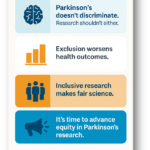I knew there was a cost when I chose to become a physician: The long hours, delayed gratification, the strained relationships. I could understand these things as familiar from my lived experiences. I knew there would be a financial burden, and having been raised by two immigrant parents, an electrician and a nurse, I was no stranger to the pressures of financial insecurity. I was fortunate too: my parents did all they could to ensure my needs were met, and allowed me to focus on the long journey to becoming a doctor.
But somewhere along the way, my student loans started to feel like just a number. I had never truly carried debt of my own, and was insensitive to what it meant to live with that burden – until it was time to start planning for my financial future.
Today, I am a practicing primary care physician – I diagnose illnesses, care for patients, and guide them toward better health. I am also over $300,000 in student loan debt.
Primary care was an appealing choice for me: I would function as a generalist overseeing my patients’ health, and, over many years, build trusted relationships with them. It is not a particularly well-compensated specialty, but it does offer many opportunities to qualify for Public Service Loan Forgiveness (PSLF). Choosing primary care meant I could finally begin my career and start living the life I had been feeling left out of. Although my professional goals were within reach, I also longed for the life I had put off, reminded as those close to me lived their American dreams of starting families, having children, and owning homes.
My student loan burden remained a personal Sword of Damocles, reminding me of the price of the position I had attained. And yet, the existence of loan forgiveness, especially PSLF, was my lighthouse along the way. By continuing to care for patients, doing the work I had set out to do and still wanted to do, PSLF offered the promise of safe harbor.
I trusted the decision I had made and the system that offered this opportunity, and I started work in a nonprofit setting. However, the existence of the PSLF program has felt tenuous, given that the requirements for forgiveness must be followed to the letter, that applications are regularly denied, and that a change in administration or governmental policy could render it obsolete.
I had had a taste of the freedom that the future could hold while student loan payments were paused, a strange and unexpected reprieve during COVID-19, making it all the more bitter to see our current administration continue to challenge loan forgiveness programs and PSLF – these lifelines to building our lives outside of medicine, giving our personal lives meaning beyond our work.
Administrative challenges persist, sending a disheartening message based on systemic failure: That choosing service, and primary care, is choosing martyrdom. As America’s population ages, and increasing chronic illness places further burden on already overburdened health systems, our administration is quick to recognize the need for quality primary care, and to tell us how important we are. Our medical schools encourage students to pursue careers in shortage areas and serve marginalized communities. But our systems rely on altruism to fill these needs. While the benevolence of medical students and physicians is admirable and plentiful, it is not infinite. And in this age of mounting administrative and clinical burdens, there are already increased strains on benevolence. Without meaningful policy change, our administration sends the message that serving the greater good and caring deeply for patients means being paid less, choosing a life of servitude bound to a life of debt.
I believe physicians choose medicine not for money, but for meaning. I certainly did. But in addition to choosing medicine, I was choosing life: The ability to have a modest home, and a family, without the shadow of a six-figure loan balance dictating every step I take.
Physicians are not asking for special treatment. But we are asking for promises to be kept. PSLF must be protected, not eroded. And beyond us as individuals, public health needs to be treated as an investment, not a liability. Undermining resources for public health will increase burnout, increase physician shortages, and raise costs for our already strained health care system. We are asking for a health care system that does more than call us essential; we need one that invests in primary care as essential. To support primary care is to support everyone, through health access, equity, and sustainability.
I still believe that primary care is exactly that: primary. I chose this path knowing it would be a challenge, but I did not expect to encounter so many obstacles to serving my communities, nor to achieving financial stability. Caring for patients is a great privilege and responsibility, and yet sacrificing personal security to do so is a price that we may not be able to pay. We need more primary care physicians serving in our communities, caring for patients, and we need to support our physicians and communities to do so.
We will save lives, and we will make a difference. But we must be able to bear the cost.
John Wei is an internal medicine physician.





















![AI censorship threatens the lifeline of caregiver support [PODCAST]](https://kevinmd.com/wp-content/uploads/Design-2-190x100.jpg)
